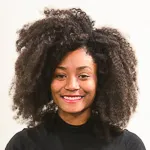During last Thursday’s Faculty Senate meeting, Provost John Etchemendy shared a prepared statement about the importance of dialogue to divisive campus issues. He stated, “The essential feature of dialogue is not monologue times two. The essential feature of dialogue is not speaking but listening, listening with respect and then expressing, in turn, one’s own view with clarity, rather than volume.”
Etchemendy is right about his definition and insight into the parameters of true dialogue. It takes discussion and differing opinions. There are often no answers, and it is understandable if there is a disagreement because of a difference in ideologies or priorities. Dialogue is important for academic discussion and personal and communal growth.
But Etchemendy fails to acknowledge where dialogue falls short.
When two dissenting groups or people engage in dialogue, the conversation is not divorced from the framework of power and privilege in which it takes place. Each group or individual comes in with its own privileges and marginalities. There is always a power struggle. There is always an imbalance of who will actually be valued and heard.
And like Black lives, these stakes matter.
Etchemendy stated, “Whether the issue is Israel and Palestine, sexual assault and due process, investment in fossil fuels, marriage and gay rights, black lives or increasing disparities in wealth, we seem to have lost the ability to engage in true dialogue.”
If we are to talk about these issues without nuance and reduce them to “for” and “against,” we cannot deny that student advocacy groups are looking death and destruction in the eye. Palestinian students have spoken of death. Trans* women of color are being murdered. Sexual assault survivors are fighting. Black people are being executed. And people at the bottom of the socioeconomic ladder are starving.
The stakes are high for people who are screaming for their voices to be heard; dialogue does not communicate urgency. Dialogue is unfair to require of everyone, especially if they feel disempowered by the entity or person with whom they are engaging in dialogue. In the context of Stanford, an institution that represents so much power and privilege, how can dialogue be the be-all and end-all when your students are telling you that they are afraid of death?
When the stakes are low, dialogue seems completely reasonable. Dialogue about philosophy and Shakespeare is great, but dialogue about whether or not black lives matter should never be a discussion because the answer is always yes. Student activism has been trying to bring Stanford into a conversation that has been ongoing since activism against oppressive systems started. This is not about dialogue. This is about joining a struggle concerning justice that Stanford has historically been on the wrong side of until their students push them. Student organizations are doing their best to bring Stanford into this conversation, but Stanford administration and some students have shown apathy.
So, student organizations form coalitions for a chance to band together for a cause and be heard. Coalitions have a clear purpose, and have dialogued amongst themselves in order to be strong and resemble a microcosm of other organizations that exist worldwide. The reason coalitions exist is because there is political support amongst students. When ASSU candidates seek the endorsements of these coalitions, they are saying that they will be thinking about these groups and causes because they see the importance of them. Coalitions have political power because students care what they think and share their beliefs.
For Etchemendy to say, “I am deeply concerned about the outcome of this approach. I would like to ask our students which they would prefer: a senate composed of thoughtful, open-minded students representing the full range of student opinion, or a senate pre-selected to represent a filtered set of beliefs. If the answer is the latter, then I fear we have failed as a university.”
This is insulting not only to coalitions, but to the students who value what these coalitions represent. The Students of Color Coalition, The Queer Coalition at Stanford, Stanford Green Alliance for Innovative Action, and the Stanford First-Generation Low Income Partnerships are coalitions who view the stakes as high. To say that they are not thoughtful open-minded students representing a range of opinions within each coalition is highly offensive. These coalitions represent the causes that are important and pressing to many students, and even within them, there are a range of beliefs. Even among activists, some believe in violence, some believe in peaceful protest. They have the same goal — justice. Coalitions are never monoliths.
Dialogue is fine when there is no urgency and people are ready to listen. The organizations involved in these coalitions have been in conversation and have been trying dialogue for years. Etchemendy’s comments prove that the university administration is out of touch with the conversations that have already been happening on campus and the struggle for justice worldwide. We have already transcended dialogue, and we’re ready for change.
Contact Mysia Anderson at mysia ‘at’ stanford.edu.
